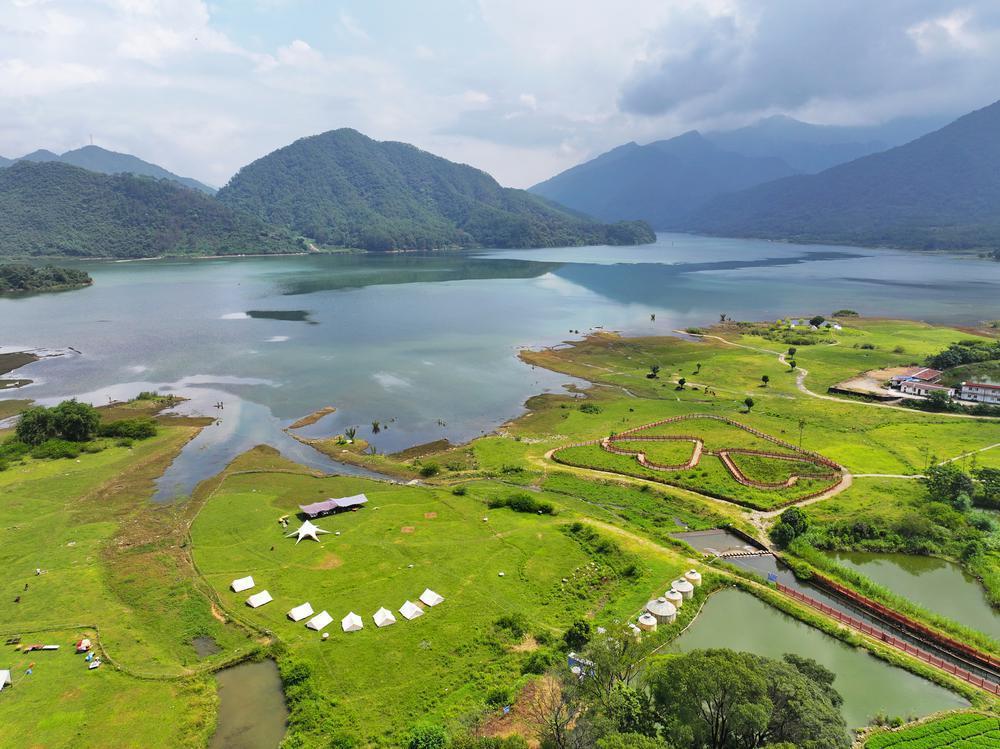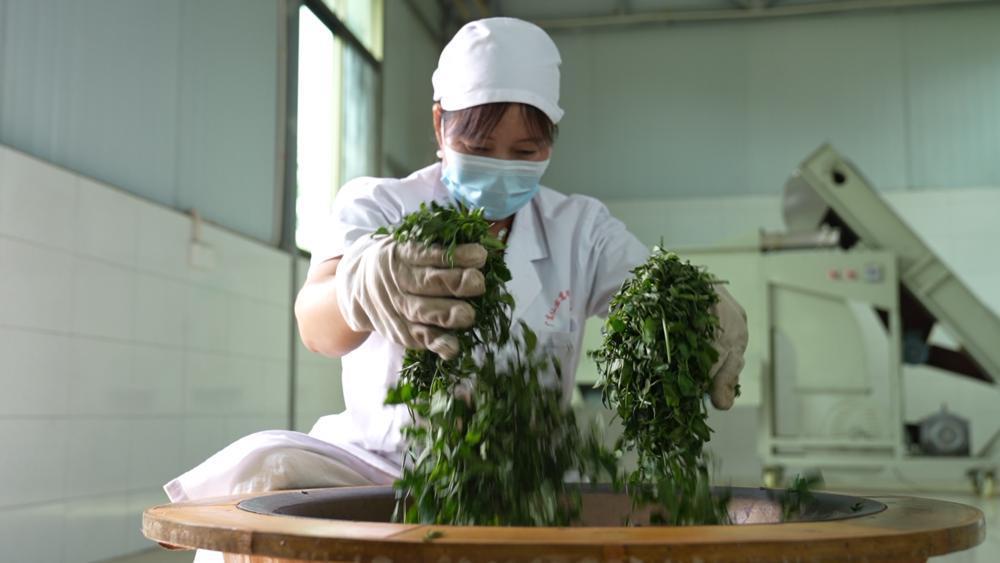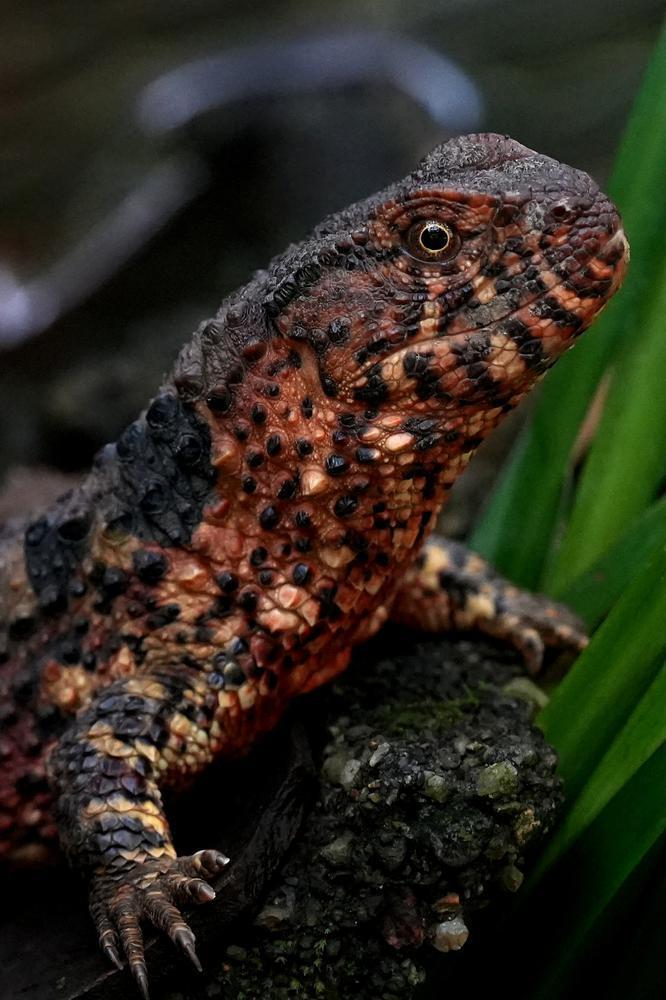
Luokeng Town, located in the southwest of Qujiang District, Shaoguan City, focuses on tea production, rural tourism and featured breeding as main industries. Relying on agricultural production for economic development, it remains a traditional agricultural town. In 2016, Luokeng Grassland was recognized as one of the top ten camping sites in the country, serving as a booster for the rural tourism development in the town. In 2022, the total output value of the town reached approximately 189 million RMB.

Tea as an economic driver
Luokeng Town benefits from its favorable natural environment for tea planting, with a large number of ancient and native tea trees distributed on the high mountains. As of 2022, the total area of artificial tea plantations through the town reached 12,000 mu (equaling 800 hectares), with an annual yield of 260 tons of dry semifinished tea and an annual output value of over 90 million RMB. The town also boasts 28 tea-processing enterprises of various sizes with multiple registered brand trademarks. Over 4,000 people in the town are occupied in tea-related work, with an average net income per tea farmer exceeding 9,000 RMB.

In recent years, relying on its tea resources, Luokeng Town has been vigorously developing the rural leisure tourism industry. With four sessions of tea-picking competitions and seven tea culture festivals, the town has managed to boost the development of the tea and tourism industries, turning its ecological advantages into a driver for development.
Chinese crocodile lizards flourishing in Luokeng
Visitors to the Guangdong Luokeng Chinese Crocodile Lizard National Nature Reserve are able to observe the "living fossils" – Chinese crocodile lizards, who look like lizards in body and head, with a tail similar to that of a crocodile. As an ancient reptile species remaining in south China since the late Quaternary glacial period, it was nicknamed the "giant panda" of reptiles.

Since the end of the 20th century, the population of Chinese crocodile lizards has started to decrease. According to a 2019 survey, the wild population of Chinese crocodile lizards in China was only around 1,200 specimens.
Luckily, since the Luokeng Chinese Crocodile Lizard National Nature Reserve started operation in 2005, the number of wild Chinese crocodile lizards has been increasing year by year, from around 200 in 2004 to about 850 in 2021, demonstrating clear conservation results.
Currently, the Reserve has carried out a series of scientific research on Chinese crocodile lizards. In the future, they will continue to optimize the living environment for Chinese crocodile lizards and select stronger individuals for semi-wild training, which will eventually be released back into nature.
韶关罗坑:推进绿美生态建设|改革开放45周年·广东调研行
罗坑镇位于韶关市曲江区西南部,全镇以茶产业、乡村旅游业、特色种养业三大产业为主,经济发展长期依靠农业生产,是传统的农业镇。2016年罗坑大草原被评为全国十佳露营地,带动罗坑乡村旅游发展,现全镇以茶产业、乡村旅游业、特色种养业三大产业为主。2022年,罗坑镇生产总值约1.89亿元。
以茶为媒发展经济
罗坑镇自然环境优越,适宜茶叶种植生长,全境高山上分布有大量的古茶树及原生茶树群落。截至2022年,全镇人工茶园面积达1.2万亩,年产干毛茶260吨,年产值约9000多万元。全镇共有大小型茶叶加工企业28家,拥有多家注册品牌商标,全镇4000多人从事茶叶相关工作等,茶农人均纯收入达9000元以上。
近年来,罗坑镇以茶叶等自然资源为依托,大力发展乡村休闲旅游产业,成功举办了四届采茶技能比赛、七届茶文化节等活动,推动罗坑茶产业和旅游产业发展,将生态优势转化为发展优势。
“活化石”鳄蜥繁衍生息
来到罗坑鳄蜥国家级自然保护区,还可以观赏被誉为“活化石”的鳄蜥,它的身体和脑袋像蜥蜴,而尾巴却与鳄鱼的尾巴相似。鳄蜥是第四纪冰川末期残留在华南地区的古老爬行类,有爬行动物中的“大熊猫”等美誉。
20世纪末期以来,鳄蜥种群资源急剧下降,2019年的鳄蜥专项调查结果显示,全国的鳄蜥野生种群仅1200只左右。
自2005年广东罗坑鳄蜥国家级自然保护区正式运作以来,野生鳄蜥逐年增加,由2004年的200只左右到2021年850只左右,保护效果十分明显。
目前,保护区针对鳄蜥开展了一系列科研工作,接下来将继续优化鳄蜥的生存环境,并在繁育的鳄蜥中挑选较为强壮的进行半野化的训练,最后将其放归自然。
文 | 记者 李泽宇
翻译 | 洪婷
图 | 记者 曾育文
-
6th World Hakka Businessmen Convention to be held in Meizhou from November 2nd to 4th
2023-10-13 23:32:59 -
Video | Countdown: highlights of the 134th Canton Fair
2023-10-13 23:32:59 -
Why flame of Hangzhou Asian Para Games lit in Guangzhou?
2023-10-13 23:32:59 -
Approaching 134th Canton Fair brings over 100,000 global buyers pre-registered
2023-10-13 22:17:04






